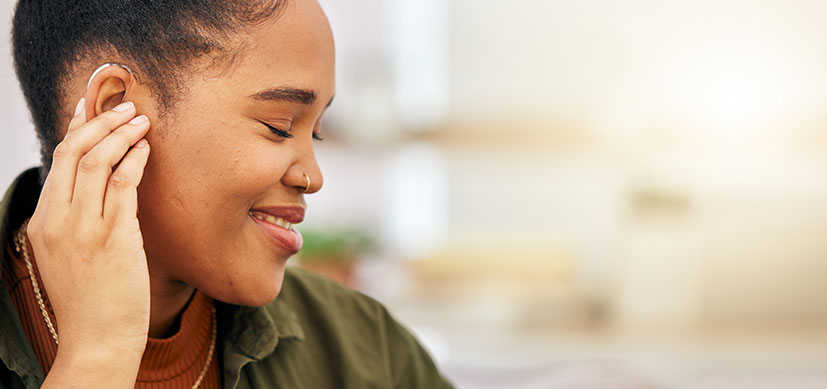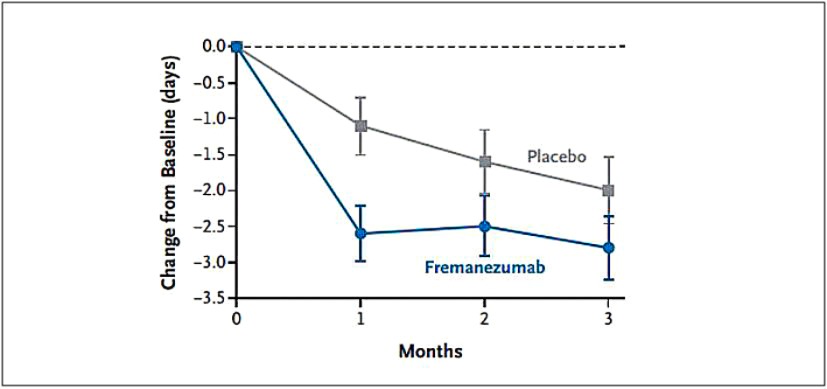Self-Fitting Hearing Aids Prove Comparable to Those Professionally Fitted
Research By: David R. Moore, PhD
Post Date: August 8, 2024 | Publish Date: July 25, 2024

First of their kind studies have potentially major implications for hearing health across the globe, particularly for adults in underserved populations accessing high-quality care
A two-year series of studies conducted by researchers at Cincinnati Children’s and the University of Pretoria, South Africa, found that self-fit, over-the-counter (OTC) hearing aids provide comparable immediate- and long-term benefits equal to those of OTC hearing aids fitted by audiologists, using best clinical practice.
In the most recent paper just published in JAMA Otolaryngology–Head & Neck Surgery, it was shown that enabling patients to choose sound level and quality provided slightly improved benefit compared with fittings that incorporated a specific hearing test.
David Moore, PhD, director of the Communications Sciences Research Center, Division of Patient Services Research, was co-leader of the team and helped facilitate the funding, background development and publication of the team’s findings across three papers in JAMA Otolaryngology – Head & Neck Surgery.
“These studies are the first of their kind and have potentially major implications for both adult and pediatric hearing health across the globe—particularly for patients and families who may be struggling to access care,” Moore says.
The original trial took place at the University of Pretoria in South Africa in 2022. Researchers divided 44 participants into two groups. The Self-Fit Group used a smart phone app to test hearing and adjust their own hearing aids. An Audiologist-Fit Group received the same type of devices but fitted by a certified audiologist.
Self-reported outcomes were compared using the Abbreviated Profile of Hearing Aid Benefit (APHAB) and the International Outcome Inventory for Hearing Aids (IOI-HA). At two weeks, both groups reported similar levels of benefit. At six weeks, however, the Self-Fit group reported greater benefit in some measures of the IOI-HA, including user satisfaction.
In the most recent study, it was found, surprisingly, that participants received benefit whether or not auditory testing guided OTC fitting. In fact, self-adjustment provided significantly higher satisfaction and longer daily use than the fitting based on a hearing test.
“These findings support the potential of OTC devices to increase accessibility and affordability of hearing care, offering a promising alternative for people with mild to moderate hearing loss,” Moore notes. “As the FDA has only recently established regulations for OTC hearing aids, these results are timely and important for guiding future hearing aid practices and policies.”
Future studies are needed to explore a broader range of OTC devices, with larger and more diverse samples including children, for example. Confirming these findings, addressing any long-term challenges, and further investigating the role of ongoing support could also enhance the long-term satisfaction and benefit of these devices.
Read more about these series of studies in JAMA Otolaryngology – Head & Neck Surgery:
- Effectiveness of an Over-the-Counter Self-fitting Hearing Aid Compared With an Audiologist-Fitted Hearing Aid: A Randomized Clinical Trial
- Long-Term Outcomes of Self-Fit vs Audiologist-Fit Hearing Aids
- Comparing Self-Fitting Strategies for Over-the-Counter Hearing Aids: A Crossover Clinical Trial
Disclaimer: Self-fit, over-the-counter (OTC) hearing aids are designed for people 18 years of age and older. Children with hearing loss have specific needs that should be addressed with prescription hearing aids fitted by a pediatric audiologist. The U.S. Food and Drug Administration (FDA) restricts the use of OTC hearing aids for individuals under 18 years of age.
Don’t miss a post!
- Subscribe to the Research Horizons newsletter
- Follow Cincinnati Children’s Research Foundation on X (formerly Twitter): @cincyresearch
| Original title: | Comparing Self-Fitting Strategies for Over-the-Counter Hearing Aids |
| Published in: | JAMA Otolaryngology – Head & Neck Surgery |
| Publish date: | July 25, 2024 |
Research By








